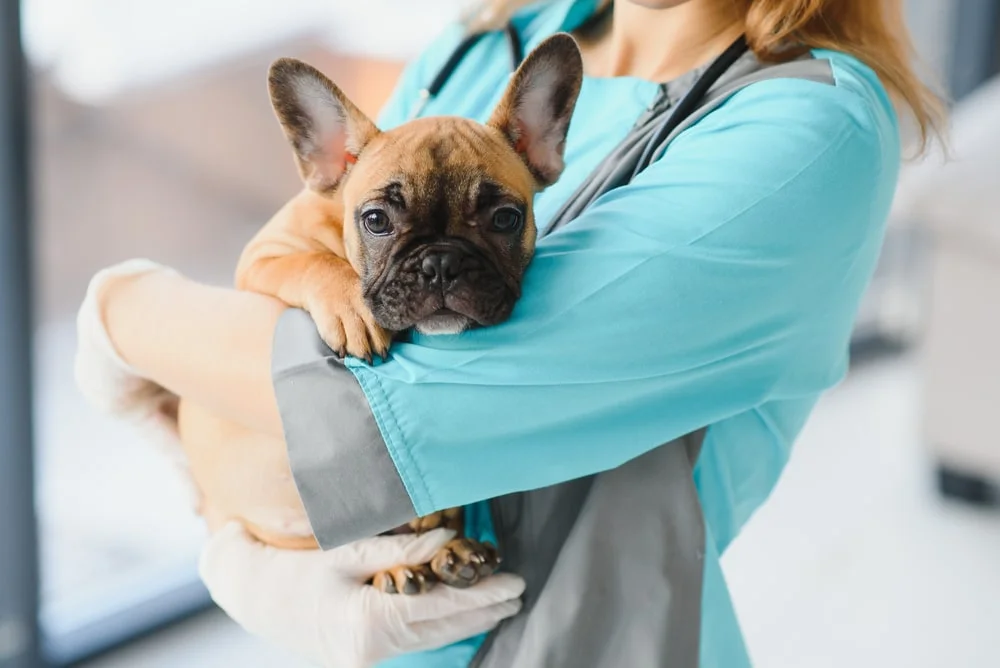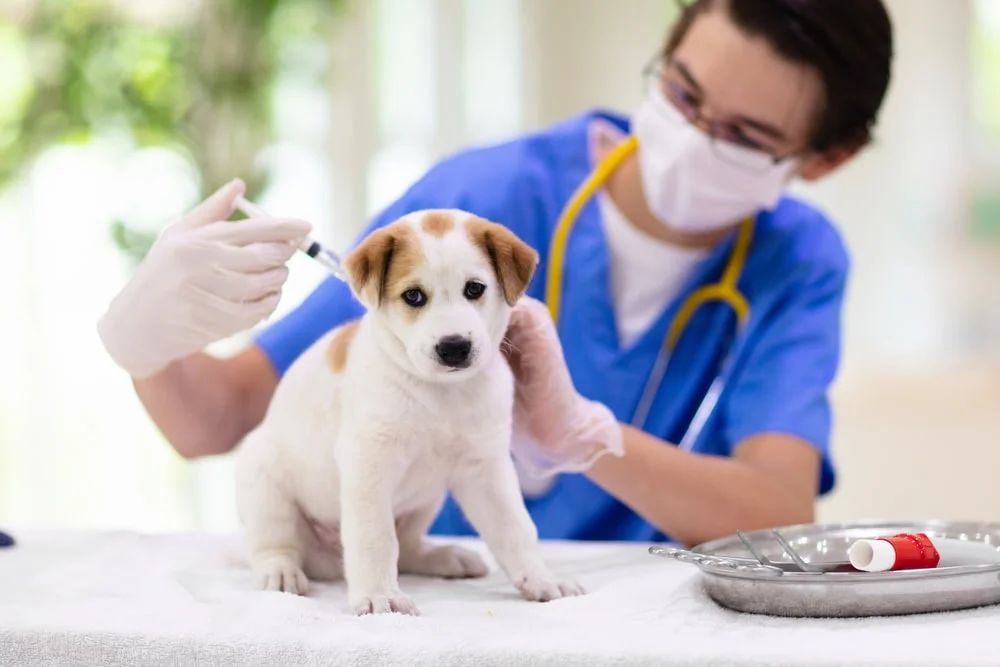PET CARE
Shots For Dogs: A Guide to Dog Vaccinations
If you’re like many dog parents, you want your furry family member to live a long, healthy life. Many dog owners do this by choosing their dog’s food carefully, investing in vitamins and supplements, and carefully vetting dog-sitters, doggy daycares, and boarding facilities.
But what about vaccines? Whether you’re getting a puppy or an older dog, vaccinations are a key part of helping your dog live a longer and healthier life. This should include the vaccines your dog needs when you first adopt them, vaccines specific to your dog’s needs, and annual booster vaccinations.
Wondering which dog vaccines are absolutely necessary? Read on to find out more.
How Do Vaccines Work for Dogs?
According to the American Veterinary Medical Association, vaccines can help prepare your dog’s body to fight off disease-causing agents. Vaccines contain foreign agents that look like the diseases they are designed to fight. However, they do not cause illness.1
Introducing vaccines into the dog’s body stimulates the immune system to respond by producing antibodies to the illness. Once armed with the antibodies, your dog’s immune system is prepared to recognize certain diseases and fight them off.1
What Vaccines Do Dogs Need? Core vs. Noncore
The American Animal Hospital Association’s (AAHA) guidelines for dogs break vaccines into two categories: core and noncore.2
Core vaccinations
Core vaccines are considered essential for all dogs. These protect against illnesses that are serious in nature and may cause significant illness or death. These also include illnesses that could be easily transmitted from animals to humans.
Core vaccines for dogs include vaccinations to treat:2
- Canine distemper
- Canine hepatitis/adenovirus-2
- Canine parvovirus
- Canine parainfluenza virus
These four core vaccines are often combined into the canine DHPP (sometimes called DAPP) vaccination, named after the first initials of each illness they treat (distemper, hepatitis, etc.).
Core vaccination schedule
If your dog is under 16 weeks of age, the standard puppy vaccination schedule recommends that they receive at least three doses of their combined core vaccinations starting at 6 weeks old. Each dose should be given 2 – 4 weeks apart.2
If your dog is over 16 weeks old, they can receive up to two doses of the combined vaccine, with doses given 2 – 4 weeks apart. After that, revaccination is usually recommended 1 year later with booster vaccinations every 3 years.2
Noncore vaccines
Noncore vaccines are vaccines that aren’t recommended for all dogs, but may be helpful for your dog based on:
- Your dog’s age, breed, and gender
- Your dog’s medical and genetic history
- Your family and dog’s lifestyle, travel habits, and environment
- Local animal laws and the prevalence of certain illnesses in your area
Some common canine noncore vaccines include:2
- Bordetella (sometimes referred to as kennel cough)
- Leptospirosis
- Lyme disease
- Canine influenza
- Rattlesnake vaccine
Your vet should be able to help you determine which noncore vaccines your dog should receive. They may also recommend that your dog receive annual booster vaccines.
Rabies vaccination
Core vaccines are strongly recommended for most dogs, but not legally required. However, most states have legal requirements for dogs to be vaccinated against rabies. Some states require the vaccine to be administered by a licensed veterinarian, while other states allow veterinary technicians or similarly licensed individuals to administer it.
Many states often require proof of a rabies vaccination in order to register your dog. Additionally, some states require that the rabies vaccine be administered every year, while others require it every 3 years.
If you are unsure of the requirements where you live, talk to your vet or check the AVMA State Rabies Vaccination Laws.3
Dog Vaccination FAQs
Still wondering about getting your dog vaccinated? Here are the answers to some of the most frequently asked questions that you can use to make an informed decision.
Can my dog experience side effects from vaccines?
Most animals have very little reaction to vaccinations. However, like any medical procedure, there is always some risk. The most common side effects are mild and usually resolve within a day or two. Some side effects of a vaccine could include:1
- Fever
- Sluggishness
- Temporary pain or swelling at the injection site
- Mild respiratory symptoms
Do vaccines guarantee my dog won’t get certain illnesses?
Vaccinating your dog does not guarantee they will not contract an illness. However, the widespread use of vaccinations within the last century has prevented death and disease in millions of animals.1
In cases where a vaccinated dog contracts an illness, the dog usually experiences less severe symptoms. There may also be a small number of animals who simply do not respond to vaccinations. These animals are often referred to as non-responders.1
Does my indoor dog need annual booster vaccinations?
Even if your dog spends the majority of their time indoors, keeping your furry friend up-to-date on vaccinations will protect your dog, other dogs, and your family from common diseases.1
Additionally, wild animals are known to be carriers of certain diseases like rabies. Mice, bats, squirrels, and birds can end up in your home through chimneys, garages, and crawl spaces before potentially interacting with your pet. If you travel with your dog or board them in a facility, you will likely be required to have proof of vaccination.1
How much do dog vaccinations cost?
The cost to vaccinate a dog will vary depending on your vet and the types of vaccinations that they recommend for your dog. Usually, the core distemper vaccine or DHPP/DAPP vaccinations cost around $75 – $100, with an additional $15 – $50 for a mandatory rabies vaccination.
Noncore vaccinations and boosters tend to cost between $15 – $40 per vaccination, both for the initial vaccination and for the annual boosters.
Consider Investing in Pet Insurance
If you’re looking for ways to keep up with your pet’s vaccination schedule, without breaking the bank, consider investing in a dog insurance policy with MetLife Pet Insurance. Our dog insurance policies can help you provide the coverage and care your furry family members deserve.4,5 Get your free quote today.


